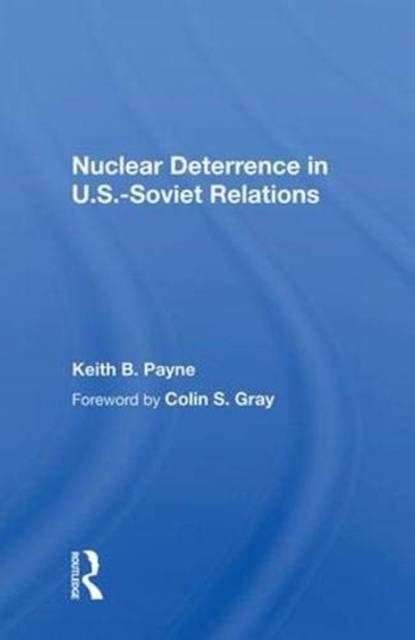
- Afhalen na 1 uur in een winkel met voorraad
- Gratis thuislevering in België vanaf € 30
- Ruim aanbod met 7 miljoen producten
- Afhalen na 1 uur in een winkel met voorraad
- Gratis thuislevering in België vanaf € 30
- Ruim aanbod met 7 miljoen producten
Zoeken
€ 195,95
+ 391 punten
Uitvoering
Omschrijving
This book critically examines U.S. attempts to establish a nuclear deterrent against the Soviet Union and offers new approaches to dealing with the changing strategic environment. Dr. Payne maintains that the most influential theories of nuclear deterrence--Assured Vulnerability and Flexible Targeting--are unrealistic, given Soviet foreign policy and attitudes toward nuclear war, and no longer adequately meet the requirements of U.S. national security. Identifying an approach compatible with U.S. security commitments, he argues that future U.S. policy should focus on defeating the "Soviet theory of victory"--on threatening Soviet military forces and domestic and external political control assets, while also defending the U.S. against nuclear attack. The discussion covers recent developments, among them the "new nuclear strategy" of the Carter administration and President Reagan's new weapons program.
Specificaties
Betrokkenen
- Auteur(s):
- Uitgeverij:
Inhoud
- Aantal bladzijden:
- 258
- Taal:
- Engels
Eigenschappen
- Productcode (EAN):
- 9780367020071
- Verschijningsdatum:
- 7/06/2019
- Uitvoering:
- Hardcover
- Formaat:
- Genaaid
- Afmetingen:
- 149 mm x 229 mm
- Gewicht:
- 635 g

Alleen bij Standaard Boekhandel
+ 391 punten op je klantenkaart van Standaard Boekhandel
Beoordelingen
We publiceren alleen reviews die voldoen aan de voorwaarden voor reviews. Bekijk onze voorwaarden voor reviews.











